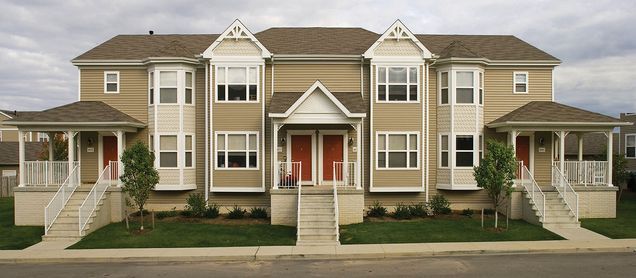Tagged: Housing Choices Act
Supplying Housing Demand: Gov. Baker’s Proposed Housing Choices Act
There is no question that Massachusetts generally, and the Boston area in particular, is mired in an affordable housing crisis. Renters and would-be buyers are heavily burdened with disproportionate housing costs and are forced to compete for a limited supply of units. As of 2019, Massachusetts rental costs climbed to the third highest in the nation, surpassed only by California and Hawaii, making this the rare occasion in which beating New York isn’t something to celebrate. To increase housing, the state must address the burdensome rules that hinder the development of new units; especially multifamily homes. One possible solution is the proposed Housing Choices Act.
Though there are many facets to this issue and no simple solution, Gov. Charlie Baker is focusing on attacking the restrictive zoning rules and arduous permitting processes. Gov. Baker argues these rules are causing shortfalls in housing stock, driving up prices as demand far outstrips supply. Gov. Baker’s bill, the Housing Choices Act, was stalled throughout 2019, until late December when it was referred to the House committee of Ways and Means.
The Act has garnered the support of organizations such as the Boston Medical Center, Real Estate Bar Association, Massachusetts Municipal Association, Massachusetts Association of Community Development Corporations, Metro Housing Boston, and many more.
Gov. Baker’s administration has set a target of building 135,000 new housing units by 2025 and the Governor believes rezoning to allow more multifamily construction is a key piece in increasing housing production. Since 2017, Gov. Baker’s Housing Choices Initiative has incentivized municipalities to help meet this target by providing grants to support housing construction, but access to those grants still requires communities to vote in favor of rezoning. The Housing Choices Act would simplify rezoning by reducing the threshold of votes needed to pass certain kinds of progressive, production-oriented zoning changes in Massachusetts municipalities from two-thirds to a straight majority vote. Massachusetts is among the few states which require a supermajority for these kinds of zoning votes. The Governor calls the Housing Choice Act a “critical” piece of legislation in pursuit of production goals because it will ease that rezoning process.
Among the zoning changes to which the new straight majority vote would apply are the adoption of “smart-growth” districts under Ch. 40R, which governs…. “Smart growth” includes the construction of multi-family buildings, special permits for high-density construction, the reduction of size and parking requirements, transit-oriented projects with a set percentage of affordable units, and permission to construct accessory dwelling units.
Criticism: Too Narrow or Too Broad?
Critics such as Darnell Johnson, regional coordinator at Right to the City Boston, however, believe that the bill “ignore[es] the needs of working families” and will only lead to more luxury condos and other housing out of reach for most Massachusetts residents. Chris Norris, executive director Metro Housing Boston, concurs, and points out that with 250,000 low-income households forced to spend upwards of 50% of their income on rent, “incentives alone are not sufficient to product affordable housing.” Norris cites the fact that Ch. 40R was passed in 2004, was expected to generate 33,000 new units over ten years, and more than $20 million has been poured into its incentives. As of 2017, however, this law has produced only 3,500 units, less than half of which are designated as affordable.
Advocates within and without the Baker administration counter that this bill is not meant to be a panacea for housing woes but rather a step in the right direction. Clark Zeigler, executive director of the Massachusetts Housing Partnership, points out that right now good housing proposals are defeated despite winning majority support because of the current two-thirds voting requirements. Such was the case in Salem, where a measure to increase accessory dwelling units, one of the Housing Choice Act’s targets, won the majority, but not supermajority, and thus failed to pass. Salem Mayor Kim Driscoll supports Gov. Baker’s efforts to prevent situations like this, calling on local authorities to pursue a “strong partnership with state leaders.” Once this problem is solved, MHP and other affordable housing advocates can and will continue pushing for further means of providing relief to those overly burdened by housing costs. In an official statement, CHAPA (Citizens’ Housing and Planning Association) made its support of the Housing Choice Act clear for the same reasons. “Lowering the super majority threshold required for zoning changes will empower the simple majority of people in a community to vote ‘Yes’ for housing.” CHAPA sees the bill as an essential opportunity to help communities “encourage housing development and undo policies that prevent housing production and perpetuate segregation.”
Another source of criticism is a fear that the bill would inevitably cause unwanted and overly dense construction which will damage the character of older neighborhoods. Similarly, Rep. Smitty Pignatelli (D-4th Berk.) proposes that the switch to straight majority be predicated on local approval out of concern for state-level infringement on local autonomy. Sen. Brendan Crighton (D-Lynn), co-chairman of the Housing Committee, does not believe this is a real cause for concern, insisting that the bill “doesn’t take away any local control. . . [but rather] puts together a more common-sense approach that says a majority of folks can make a decision on the matter.” He sees this and similar legislation as crucial because Massachusetts’ housing production is half of what it was in the 1970s while rent has risen by 75% over the past twenty years.
Some communities, such as Needham and Springfield, believe they and some 70 other municipalities should be exempt from the bill because 10 percent or more of their housing stock already meets state “affordability” thresholds. Needham Select Board Chairman John Bulian sees requiring his town to comply would be penalizing it despite its having exceeded Massachusetts’ affordable housing percentage goals. Such complaints, however, seem to miss the larger picture of spurring more housing growth by enabling local residents greater control over their zoning through simplified zoning vote processes.
Massachusetts is in a housing crisis—one that can only be fixed by finding a way to build more housing. An important first step is to reform the rules and processes that restrict the needed housing units.
 Kellen Safreed anticipates graduating from Boston University School of Law in May 2021.
Kellen Safreed anticipates graduating from Boston University School of Law in May 2021.


